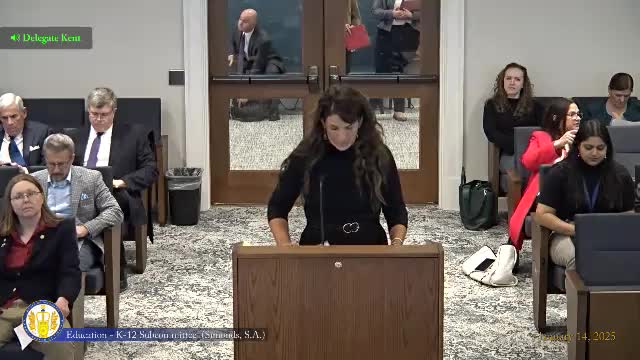Article not found
This article is no longer available. But don't worry—we've gathered other articles that discuss the same topic.
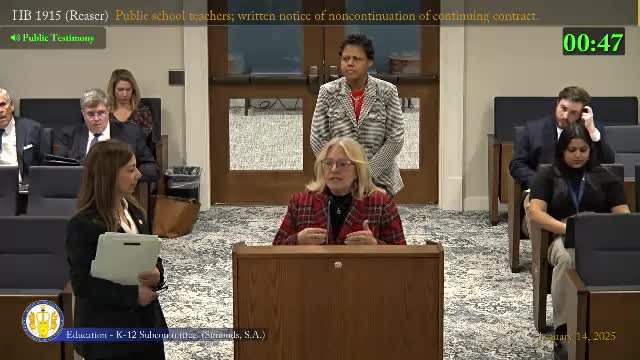
Subcommittee refers bill to develop flexible funding and data process for English learners to appropriations
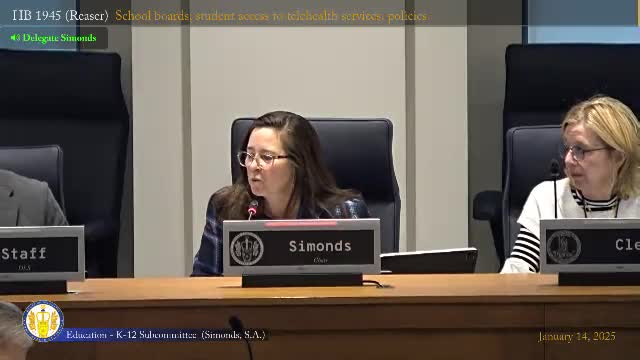
Committee splits on technical fix to continuing-contract due-process language; bill reported 5-2
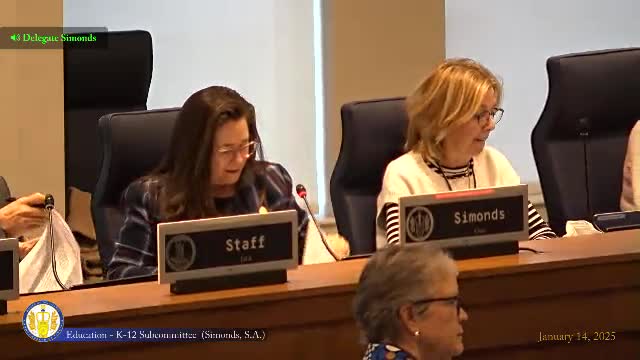
Subcommittee advances bill requiring school divisions to report support-staff salary averages to state
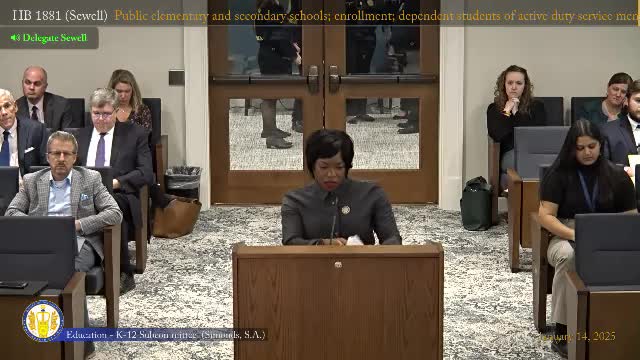
Subcommittee backs permissive policy allowing Virginia school boards to enroll military children outside attendance zones
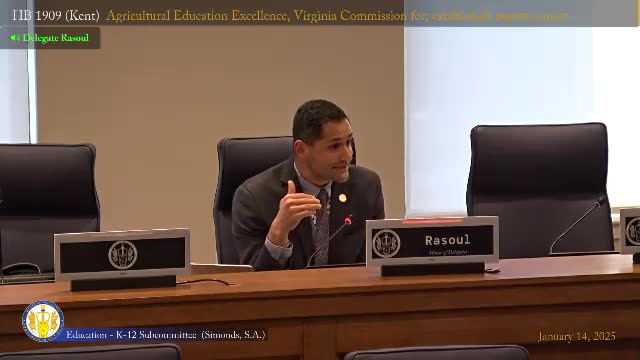
Panel approves measure to speed special-education transitions for military-connected students
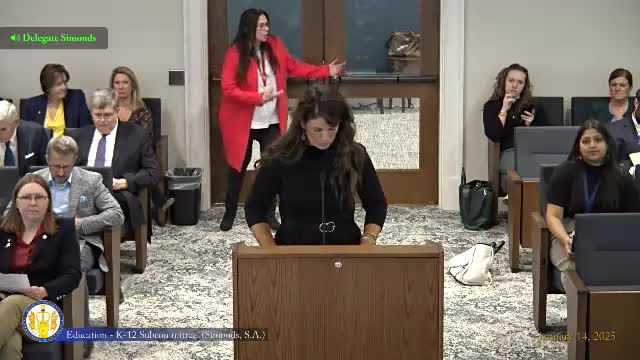
Panel backs bill to create Virginia Commission for Agricultural Education Excellence
